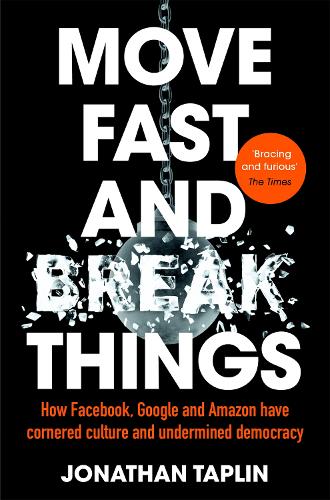The book offers an honest and opinionated look at the monopolies of Amazon, Facebook, and Google, with a focus on their ties to politics and culture.
The Financial Times review praises the author for his straightforward approach to discussing the monopolies held by major tech companies. They note that while the book is opinionated, it provides a valuable perspective on how these companies influence politics and culture. The reviewer appreciates the detailed analysis but suggests that some readers might find the author's views too one-sided. Overall, it's a thought-provoking read that challenges the status quo.
Quick quotes
An honest albeit opinionated look at the monopolies enjoyed by Amazon, Facebook and Google.
Taplin is very good at exploring ties between the businesses and the political landscape.
The book provides a valuable perspective on the impact of these tech giants on our daily lives.
